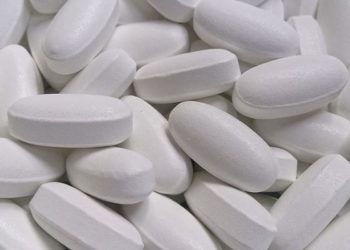Prescription of folic acid supplementation was associated with reduced suicidal behavior
1. In patients with prescription for folic acid, rate of suicidal behavior was lower in months with prescription compared to months without.
2. Furthermore, amongst patients with prescriptions for vitamin D12, rates of suicidal behavior did not differ between months with or without prescription.
Evidence Rating Level: 2 (Good)
Suicide is a leading cause of death in the United States (US), with increasing incidences particularly during the COVID-19 pandemic. Therefore, additional therapeutic options that may modulate suicidal behavior are needed. Folic acid levels have been associated with depression and suicidality in small case-control studies. Furthermore, folic acid supplementation has been shown to augment therapy for patients with depression. However, whether folic acid supplementation alone can modulate suicidal behavior has not been well characterized.
This study was a within-person exposure-only cohort study design using insurance claims data from 866 586 (81.3% female) adult patients in the US. Patients aged 18 years or older with private health insurance were included in the study. The exposure was folic acid supplementation as measured by having a folic acid prescription. The negative control group was patients exposed to cyanocobalamin (vitamin B12). The primary outcome was rate of intentional self-harm captured using diagnoses codes for suicide attempts, depression, anxiety, bipolar, schizophrenia, sleep disorders, and pain.
The study results demonstrated that there were fewer suicidal events during months covered by folic acid prescription compared to months without (4.73 vs. 10.61 per 100,000 person-months). In contrast, there were no differences in suicidal event rate between months with vitamin B12 prescription and months without. However, this study was limited as it found that many patients prescribed folic acid had a pain disorder or were taking folate-reducing agents, which limits the generalizability of these results. Nonetheless, these results warrant further study of possible mechanisms of action underpinning the association between folic acid and suicidal behavioral, as well as randomized control studies to test whether the association is due to a causative relationship.
Click to read the study in JAMA Psychiatry
Image: PD
©2022 2 Minute Medicine, Inc. All rights reserved. No works may be reproduced without expressed written consent from 2 Minute Medicine, Inc. Inquire about licensing here. No article should be construed as medical advice and is not intended as such by the authors or by 2 Minute Medicine, Inc.





![Vaccines for predicted influenza strains may provide wide protection [PreClinical]](https://www.2minutemedicine.com/wp-content/uploads/2014/11/18156_lores-75x75.jpg)
